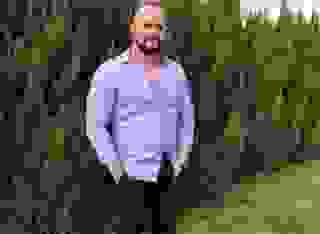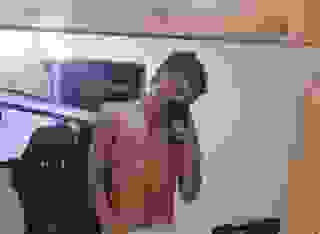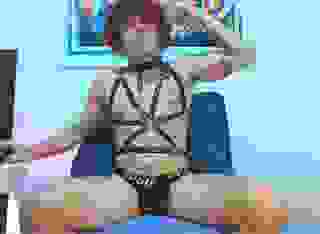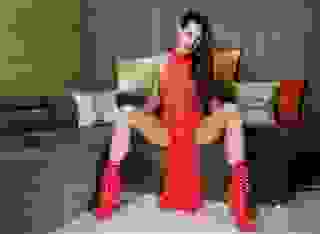- Gay Male
- Luke's Early Years
Note: You can change font size, font face, and turn on dark mode by clicking the "A" icon tab in the Story Info Box.
You can temporarily switch back to a Classic Literotica® experience during our ongoing public Beta testing. Please consider leaving feedback on issues you experience or suggest improvements.
Click here[This story can be read on its own, but it continues the story of Jonathan and David into the next generation.
All institutions and characters in the story are purely imaginary.]
*
Chapter 1
Early years
One of my earliest memories is when I was about six years old being taken for a walk by Uncle Arthur Rockwell in the wood that he and my cofather had planted at Ixton some eight or so years before. The trees had grown to a respectable height, though nothing like as high as they would ultimately get, and the previous summer they had been thinned and coppiced to allow a decent growth distance between each tree. My little sister Cathy, who was four, had stayed at home with our cofather, whom we called Pop, to distinguish him from our other father David Scarborough, whom we called Dad. The wood is on a steep slope, and it required a lot of care and effort for us to climb the slope. "When the trees are more than three metres high," said Arthur, "we'll create a path through the woodland. This was your cofather's first planting, Luke. There are now little patches of woodland all over the country, and he and your Uncle Robin are still looking for new sites. You should get him to take you with him in the summer holidays. He used to go in a motor caravan that you could sleep in. You would like sleeping in one of those."
I was rather taken with the idea, and asked Pop if we could do it. "Yes, why not?" he said, "and Cathy can come as well. There may even be space for Dad, if we can find a week when he has no engagements!" That afternoon walk led to one of my most enjoyed childhood holidays, a week spent visiting the woodlands of Pop's Afforestation Trust, and looking out for new sites for planting. We slept in the relative comfort of the rented 'motor home' each night, and each morning Pop would cook breakfast for the four of us. The weather was warm and dry, we walked a lot and we visited some towns as well as the woodland sites. We even spotted a plot of land by the river in the town of Dunchester that would make an admirable spot to plant willow and alder trees. Pop instantly called Uncle Tim on his mobile phone and asked him to open negotiations to buy the land, which being in the flood plain was quite unsuitable for building. In a similar way, we identified at least four other prospective sites, and Pop resolved that we should do this every year. We kids loved the idea, it appealed to us much more than three weeks in a villa in Tuscany, which our fathers had been considering for the following year, even though they warned us that one year it would be cold and wet! The problem was that because of Dad's hectic schedule of gigs and opera house fixtures, we had to book the space for summer holidays as much as two or even three years ahead.
The other thing that happened about now was the commissioning of our swimming pool in Rockwell's Barn. The plant had all been installed when the house was completed, some eight or so years before, but my parents decided not to proceed with its commissioning because of the running costs. It was only economic to have the pool when we were resident there permanently. They moved in full-time soon after I was born, but in the interests of safety, the pool was not commissioned until Cathy had reached the age of five, to prevent any risks of accidents with small children. Once the pool was up and running our two fathers tried to teach us to swim, but it was clear that they had neither the time nor the training to manage proper tuition. Still, it was nice for us all to play around in the water. Eventually Pop decided to investigate private tuition, and approached the manager of the Camford Men's Fitness Club to see if any of his staff gave private lessons. One guy volunteered to teach both of us on Saturdays for a fixed hourly fee plus mileage expenses for his car. He seemed a very nice young man in his early twenties. We were not sure whether he was gay or not (some staff at the centre were, as were many of their clients), but it did not worry us one way or the other. In addition, once I started at Winton College school, I got lessons at school in their pool.
Chapter 2
Choir school
It was about this time that I started singing. I used to listen to Dad practising, and I found myself singing along with him. When he heard me, he made a phone call and then bundled me into the car and drove us into Camford to Uncle Marcello's house. Dr Marcello Fabioni was now in his early seventies, but was still as active as ever. He accompanied Dad in an English song 'Dear pretty, pretty youth' that I had heard him sing many times. Then he said to me "Luca," (he always called me by the Italian version of my name), "do you think you could sing that from memory?"
"Oh, yes," I said. He played the introduction and I began the song and sang it through without much hesitation. He listened intently, then asked me to sing it again while Dad played.
I did so, and Marcello said "He's got the Scarborough gift of a good singing voice. I advise you to get him auditioned for Winton College choir school. He would get a good education and excellent musical training at the same time." Dad made another phone call and found out when the next voice tests were scheduled, and I was duly taken along and auditioned. A place in the choir school was offered to me starting the following September, when I would be seven.
Because of the nature of the training, I had to become a weekly boarder. Cathy was about to start at Ixton primary school, where I had been very happy for the last year, so clearly Pop had to stay in Ixton, even though we still had the flat in Camford. Each Friday afternoon in term time, my cofather and Cathy would come about 5 pm when evensong was over and collect me from school, and I would have to be back there by 5 pm on the Sunday, when the service was an hour later than on weekdays. Weekly boarders were allowed Saturdays off. From the school we would either go straight home to Ixton if Dad was at home, or go into Camford and have a meal at a restaurant. There was a nice Italian restaurant called Venezia, where we often went, and where the staff were very nice to us children. Pop would talk to the staff in Italian, and the food was always lovely. Both our fathers were fond of Italy and everything Italian, and of course Uncle Marcello and Auntie Caterina encouraged that.
At school, and this applied to Cathy as well as to myself, no-one bothered to ask about our mother. The headteachers knew of course that we had no mother but two fathers, but the kids seemed quite uninterested. The house-mother at Winton choir school was a lady in her early fifties whose own children were grown up. She did ask once about my mother, but I had learnt by then when saying that I had no mother, not to add that I had two fathers. She was very nice, and could deal with problems of minor injuries, tummy-aches and homesickness very expertly. Any boy who was homesick she took into her private sitting-room, gave him a jam-tart and let him watch a children's DVD. All the boys loved her. We were very well looked after, and we learnt a lot. Classes were small and the staff dedicated. One of the most useful things that I learnt at Winton College School was to play the piano. There was also a senior school, so that when boys' voices broke, they just moved into the senior school, where there was a majority of boys who had never been in the choir. Some of the really good singers ended up as choral scholars in the college when they were eighteen. I made a number of friends in the choir school, some of whom I still see regularly twenty years later.
My schooling had a big effect on our family Christmas and Easter arrangements. Although Winton College chapel was not a cathedral and did not have sung services outside university terms, it was still expected that the choir would sing at services over the two major Christian festivals that fell out of term, so we had to sing on three days over Christmas and the ten days over Easter that ran from Palm Sunday to Easter Monday. So our tradition of spending Christmas with our grandparents at Loxton had to be broken. Instead my grandparents and Uncle Jeroen came to Ixton for Christmas and the new year. Similarly our tradition of spending Easter seeing our other grandmother in Nice also had to be changed. We went to Nice on Easter Tuesday and stayed for four days, and this worked well most years when Easter was not too early or too late. Dad was absolutely rigorous about refusing all offers for singing gigs over the Christmas and Easter periods when I was at home, so in spite of his often missing birthdays and other celebrations he never missed the times that I was at home. Moreover, he always came to the Christmas and Easter services at which I was singing, and grandad came with him every other year. Grandad was a churchwarden at Loxton, and could not be away every Christmas and Easter, so he arranged with his fellow churchwarden to do his duties every alternate year, and to come to Ixton and join his wife and the rest of the family for the belated celebrations when I came home from my Christmas duties. It was great to have grandad to share the late celebration, and made me realize at a very early age that some people have to work on Christmas Day.
Chapter 3
My parents
My father's career over the period from my birth had progressed rapidly from minor roles like Basilio in 'Le Nozze di Figaro' in which he made his operatic debut in Bristol, to major roles like Don Ottavio in 'Don Giovanni' and Tamino in 'Die Zauberflöte' at Glyndbourne, leading to Cavaradossi in 'Tosca' at Covent Garden, by which time he had learnt to be a good actor as well as a singer, something that he found very difficult. He also sang in recitals and oratorio in Britain and the Netherlands and increasingly in Germany. He was a regular in presentations of the Vlaamse Opera in Antwerp and Ghent. More recently he had become big in the wider international scene, with operatic engagements in Italy, Vienna and New York. Although operatic runs are short, and lieder recitals and oratorio tend to be one-off performances, he was away from home for at least 50% of our childhood, and I could see as we got older, how much he regretted this.
Pop, our cofather (his name is Jonathan Singleton) also had a career, albeit part-time, for most of our childhood after we had both started school. Cathy did not come home from school on the days when Pop was in Camford, but went to the Rockwell's where Mrs Rockwell kept an eye on her and taught her all kinds of domestic skills. She did this out of the goodness of her heart, but every year during the school holidays, when he had no college commitments, Pop paid for her and Arthur to have two weeks holiday in any place of their choice, staying in the very best hotels, while their son George looked after the farm. Our house had once been a disused barn on Arthur's land, hence its name of Rockwell's Barn. Pop had a substantial investment income and did not need to work for a living, but he felt that after years of being a high-powered postdoctoral research assistant he should do something in the university, but was lacking a track record of getting research grant money and that ruled out a university lectureship. In addition, he spent time on his two charities and on the committee of the Men's Fitness Centre. So he got the job of tutor/lecturer teaching first-year chemistry undergraduates of St Boniface's, his and Dad's old college.
He became an immensely popular tutor, mainly because every summer after the first-year exams, all the Boni's first-year chemists were invited to a party at Rockwell's Barn. A minibus was provided to bring the students from Camford, they were encouraged to bring swimming kit and use our pool, and there were huge quantities of food and drink laid on, bottles of good wine, a barrel of decent beer. The only condition, which was strictly enforced, was that they were not allowed to bring guests. The number varied a lot from year to year, from as few as four to as many as sixteen. (St Boniface's was a small college). We children were allowed to participate, and as we got older, were expected to help serve drinks and food, a role that a regular academic would have had research students to do, but Pop of course no longer worked in the lab. The July weather was usually good and an enjoyable time was had by all. Only rarely was there drunkenness or other bad behaviour. St Boniface's chemistry alumni would reminisce about these parties for years.
Sometimes Pop left Cathy with Mrs Rockwell on a Sunday night when he dined on High Table with his friend, the Rev Dr Edward Bairstow, the college chaplain of Boni's. Edward, now a married man, though he still retained his affection for my two fathers, had been appointed to a fellowship at St Boniface's when he got his Ph.D. On other occasions Cathy stayed for the night with the Fabionis, while Pop and Dad both whooped it up with Edward on High Table, but that only happened if Dad was at home for the whole weekend.
I can't remember my sister being born, but she is different from me. Dad is really my biological uncle, and my mother (his sister) lives in Italy. Cathy's mother was a surrogate, a girl student with whom my parents arranged to have an A.I.D. baby using Pop's sperm. They were not allowed by law to pay her, but via his business manager Tim Ingledown, Pop arranged a comfortable confinement in a private hospital and saw to it that the girl's living expenses were covered for the three months in which she breast-fed baby Cathy and for six months afterwards, until she could resume her studies. Although her name appears on Cathy's birth certificate, she was just as unknown to us children as my biological mother and father. Getting Cathy legally recognized as Pop's biological daughter took all the forensic skills of Uncle Tim Ingledown's family court specialist, in spite of conclusive DNA evidence. This was before such surrogacy arrangements were recognized by law. Because we have different fathers, our parents decided that Cathy and I should have different surnames, although we regard ourselves as brother and sister. Cathy is Catherine Helena Singleton, carrying on the Scarborough tradition of having a Dutch first name, in this case my grandmother's, as well as being named in honour of Mrs Fabioni, my godmother. My name is Luke Cornelis Scarborough, my surname being the same as my mother's. To safeguard our inheritance, our fathers' wills mention our full names.
My father David and my grandfather are both devout members of the Church of England, and my godfather Edward is a priest, so it is fortunate that I have inherited my grandfather's staunch belief. My grandfather was thrilled when along with my grandmother and my two fathers and Edward and Caterina my godparents, he saw me confirmed in Winton College chapel when I was ten years old by the Bishop of Fitchey. It gave him great pleasure that when I was a choirboy I spent at least an hour a day for 26 weeks of the year engaged in the praise and worship of God, and it gives me great satisfaction to have had that privilege. I'm getting nearly as formal in my phraseology as my two fathers! Try reading the two earlier books about them, and you will see what I mean. Formal language, punctuated by quotations, is mixed with crude men-only language.
But I have NEVER had cause to regret having no mother. The two men who have brought my sister and me up have lavished love on us as well as discipline, and when I saw the results of marriage breakup in the case of two boys in the choir, I thanked God that I was the fruit of a permanent lifelong union, even though my two parents are not and never could be, married. Although my parents would have been very happy for me to see or get letters from my mother, she strictly adhered to the rules of natural parents of adopted children and made no attempt to contact or meet me. But every year on my birthday, a sum of money was transferred into my bank account from an Italian bank, and my grandparents got letters from her occasionally, but always asking that no-one contacted her.
Chapter 4
Puberty
Around the age of thirteen, my voice began to break. By singing with care, I managed to get to the end of the school year, but then it became necessary to leave the sheltered life of the choir school and enter the teenage rough and tumble of the senior school. Several of us boys experienced this at the same time of course, and our schoolwork continued without much interruption.
My cracking and pitch-changing voice did not of course signal the beginning of puberty. By the age of eleven I had discovered how to wank. No-one taught me, it is a hormonally directed instinct. At first I was not entirely sure what I was doing, but being an avid reader, I soon found out all about it. Wikipedia was then in its infancy. Rather late in the day, when I was about twelve, Pop decided to tell me about the implications of becoming a man, at least in the physiological sense. He said that if we had been an all-male household, he would have done it earlier, but the presence of my sister somehow inhibited him. He reassured me that wanking was not something to be ashamed of, but a valuable lifelong advantage of being a male, but asked me to be careful in cleaning up after myself, especially at school. He then went on to talk about homosexuality. He said that of course I had always known that I was the child of two gay men, but that did not mean that I would myself be or become gay. He pointed out that my irresponsible Italian biological father who had led my poor mother astray was certainly not gay. He went on to say that the topic was always one that I should feel able to discuss with him or with Dad, or best of all with both of them, but that if Dad was away, I should not delay in seeking advice, both spiritual and practical from him, or even from Uncle Edward. In particular, he asked me NEVER to feel self-conscious when he or Dad kissed me.
"Whatever your feelings," he said, you must never doubt that whatever you do, even a crime, we will both always love you, even when you have found your own love with a woman or man. "Moreover," he continued "even if you find yourself in love with a boy at school, it doesn't necessarily mean that you are gay, both male and female teenagers nearly always go through a homosexual phase. But by the time you get to university, you should be able to make up your mind. I always knew that I was gay, but Dad was very unsure of his sexuality when he came up to Camford, until I made him think hard about it. We had been friends for six months and I wanted him desperately, but I had to let him decide for himself what he was going to do.
"And remember too that a lot of men are bisexual, and for them any decision is not irreversible. I know that David thinks that he is gay because he knows what men want from sex, whereas men have to learn what pleases a woman, and he does not want to go down that route. And I can tell you that I am forever grateful to God that David chose me. He is the one that brought me to realize the power of love. Before I met him, I was lonely, mechanical and wealthy, also shy and frightened of women. David's mother, your grandmother, cured me of being frightened of women. I owe a lot to the Scarborough family. Your Grandma and Grandad are my true parents. My mother has always been a stranger to me, as you may have noticed.
"David has taught me to use my wealth responsibly, and not selfishly and to think of other people. He also brought me first to belief in God, and then to recognition of God's manifestation of His love in Jesus Christ. Edward also played a role in my conversion, but David sowed the seed, literally actually! It was through lovemaking with him that I came to understand God's love for human beings. You are too young to remember, but you were about three when Uncle Edward baptized me in St Boniface's college chapel. Marcello and your grandad were my godfathers and Caterina is my godmother, just as she is yours. I was confirmed the following Eastertide at a college confirmation with two nineteen-year-old undergraduates by the Bishop. So it was only seven years later that he confirmed you!"








